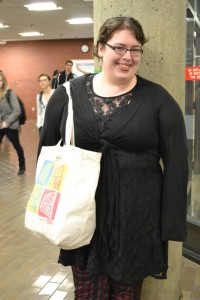As of January 1, tuition-free adult upgrading courses have been eliminated, and postsecondary institutions across BC are now allowed to charge tuition fees. This change by the BC Liberals differs from their announcement in 2007 that there would be no tuition for Adult Basic Education (ABE), which included high school and English as a Second Language courses at post-secondary institutions.
“The Camosun College Student Society is shocked,” says Camosun College Student Society (CCSS) external executive Rachael Grant. “It’s contrary to what has been promised in the past by the BC Liberals.”
According to Grant, the free access to ABE was necessary to eliminate the barrier that blocked access to job markets and further education. Zachary Crispin, chairperson of the BC chapter of the Canadian Federation of Students (CFS) says the tuition-free programs were a central element in allowing low-income adult students to pursue postsecondary education.
“This negative change in policy essentially betrays the most in-need people who would like to access education,” says Crispin. “What’s reasonable is for the public, through the government, to invest in education, so that there are not financial barriers, and we can all reap the benefit of having an educated populace and ensure that people who are in a marginalized circumstance or an impoverished background have the ability to remove themselves from that by having access to that free education.”

According to Minister of Advanced Education Andrew Wilkinson, the reason for these changes to ABE’s tuition is to financially sustain the postsecondary systems.
“Public postsecondary institutions now have an option to charge tuition fees for adult upgrading programs to keep these important programs equitable and sustainable,” says Wilkinson.
The official Opposition spokesperson for Advanced Education, Kathy Corrigan, says that this is a poorly thought out policy, that the amount of money necessary for funding free access to ABE is relatively minor, and that the Liberals’ priority is clearly not education. Corrigan also calls the new budget for ABE grants a “red herring.”
“The financial problem here is that even charging adults for upgrading or for English Language learning will not cover the cost of the program,” says Corrigan. “This is going to be very difficult for most students to pay for courses, and registration will probably go way down.”
According to the CFS, the change makes the two percent cap on tuition fee increases irrelevant and goes against the belief of accessible education.
“Going from a zero-dollar cost to hundreds of dollars certainly breaks the spirit of the cap on tuition increases for these programs,” says Crispin. “In addition to this, there’s a number of these courses that were in previous years referred to as Adult Basic Education high-school courses that were repackaged into seemingly first-year college courses, and fees were assessed to those as well. Institutions like Camosun College have skirted the rules to increase tuition fees in some of these programs.”
Beginning on April 1, the government is planning on increasing the annual budget for grants in ABE and making them more flexible.
“Right now, we’re not incredibly confident that this will be comprehensive enough to support everyone who is in need of upgrading,” says Grant.
Meanwhile, Wilkinson defends the effectiveness that these grants will have.
“Upfront, non-repayable grants are available to low-income students to cover the cost of tuition and other education-related expenses such as supplies, textbooks, transportation, and childcare,” says Wilkinson. “The annual grant budget is being increased by 33 percent to $7.6 million in anticipation of increased demand. And a more flexible approach means students who are 10 percent above the income threshold are now eligible for a grant to cover half of their tuition cost.”
